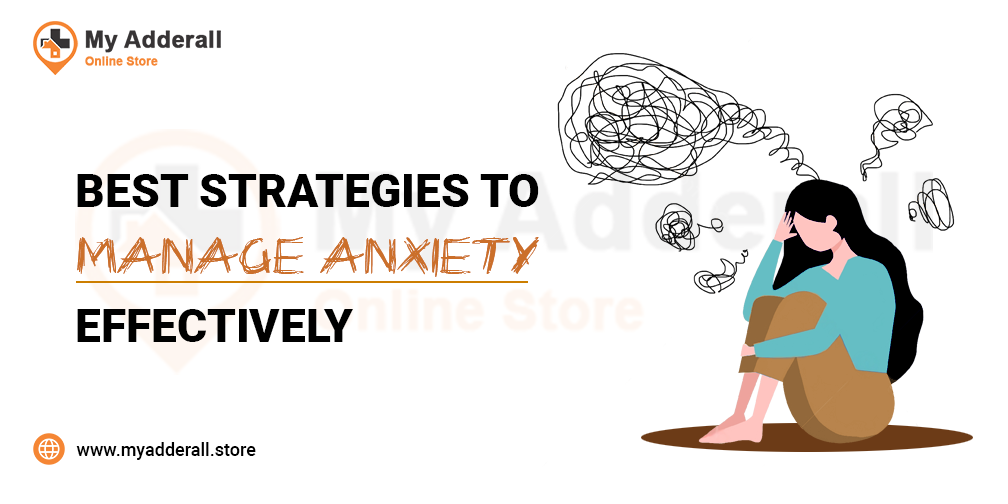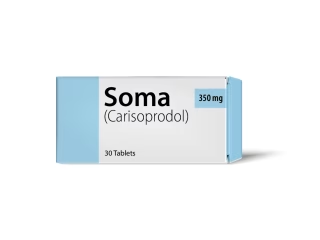Best Strategies to Manage Anxiety Effectively

Manage Anxiety is a common emotional response to stress, characterized by feelings of worry, fear, and unease. While occasional anxiety is a natural part of life, chronic anxiety can significantly impact one’s quality of life. Fortunately, there are several effective strategies for managing anxiety that can help individuals regain control and improve their well-being. In this blog, we’ll explore various methods for managing anxiety, including cognitive-behavioral strategies, lifestyle modifications, stress management techniques, and professional help.
Understanding Manage Anxiety
Before delving into management strategies, it’s important to understand what anxiety is and how it manifests. Anxiety disorders encompass a range of conditions, including Generalized Anxiety Disorder (GAD), Social Anxiety Disorder (SAD), and Panic Disorder. Symptoms can vary but often include excessive worry, restlessness, muscle tension, and difficulty concentrating. Identifying triggers and understanding the nature of anxiety can be the first step in managing it effectively.
What is the best medication for managing anxiety?
The best medication for managing anxiety depends on individual needs and medical history. Commonly prescribed options include selective serotonin reuptake inhibitors (SSRIs) like sertraline and escitalopram, which help balance brain chemicals. Benzodiazepines, such as Xanax and Ativan are effective for short-term relief but carry addiction risks. Other options include serotonin-norepinephrine reuptake inhibitors (SNRIs) and buspirone. It’s crucial to consult a healthcare provider for a personalized treatment plan.
Cognitive-Behavioral Strategies
Cognitive-behavioral therapy (CBT) is a well-established approach for managing anxiety. It focuses on changing negative thought patterns and behaviors that contribute to Managing anxiety.
- Cognitive Restructuring: This technique involves identifying and challenging irrational or distorted thoughts. For instance, if you find yourself thinking, “I’m going to fail this test,” cognitive restructuring helps you reframe this thought into a more balanced perspective, such as, “I’ve prepared well, and I’ll do my best.”
- Exposure Therapy: This involves gradually exposing yourself to anxiety-inducing situations in a controlled manner. Over time, this can reduce the fear associated with these situations. For example, if social situations trigger anxiety, you might start by practicing social interactions in less intimidating settings.
- Mindfulness and Relaxation Techniques: Mindfulness practices, such as meditation and deep breathing exercises, can help manage anxiety by promoting relaxation and reducing stress. Techniques like progressive muscle relaxation involve tensing and then relaxing different muscle groups to alleviate physical tension associated with Managing anxiety.
Lifestyle Modifications
Making certain lifestyle changes can also play a crucial role in managing anxiety.
- Importance of Exercise: Regular physical activity is known to reduce anxiety and improve mood. Exercise releases endorphins, which are natural mood enhancers. Aim for at least 30 minutes of moderate exercise most days of the week.
- Healthy Eating Habits: A balanced diet can influence your mental health. Foods rich in omega-3 fatty acids, such as fish and nuts, and those high in antioxidants, like fruits and vegetables, can support brain health and reduce anxiety.
- Sleep Hygiene: Poor sleep can exacerbate anxiety symptoms. Establish a regular sleep schedule, create a relaxing bedtime routine, and ensure your sleep environment is conducive to restful sleep.
Stress Management Techniques
Effective stress management is integral to anxiety management. Here are some techniques to consider:
- Time Management and Organization: Feeling overwhelmed can heighten anxiety. Prioritizing tasks, breaking them into manageable steps, and using organizational tools can help reduce stress and make tasks feel more achievable.
- Relaxation Techniques: Incorporating relaxation practices into your routine can alleviate stress. Techniques such as deep breathing, progressive muscle relaxation, and guided imagery can help calm your mind and body.
- Building a Support System: Having a network of supportive friends and family can provide comfort and practical help during anxious times. Don’t hesitate to reach out to loved ones when you need support.
Professional Help and Resources
When anxiety becomes overwhelming or persistent, seeking professional help is crucial.
- When to Seek Therapy: If anxiety interferes with your daily life, work, or relationships, it may be time to consult a mental health professional. Therapists can provide personalized strategies and support tailored to your specific needs.
- Types of Therapy: Various therapeutic approaches can be beneficial for anxiety. Cognitive-behavioral therapy (CBT) is commonly used, but other therapies, such as Exposure Therapy and Eye Movement Desensitization and Reprocessing (EMDR), can also be effective.
- Medications: In some cases, medications may be prescribed to help manage anxiety. Common options include selective serotonin reuptake inhibitors (SSRIs) and benzodiazepines. It’s important to work closely with a healthcare provider to determine the best course of treatment.
Self-Help and Coping Strategies
In addition to professional help, self-help techniques can empower individuals to manage their anxiety more effectively.
- Journaling and Self-Reflection: Keeping a journal can help you track your anxiety triggers and patterns. Reflecting on your experiences and emotions can provide insights and facilitate personal growth.
- Engaging in Hobbies and Interests: Pursuing activities you enjoy can provide a sense of accomplishment and distraction from anxiety. Whether it’s painting, hiking, or reading, engaging in hobbies can enhance your overall well-being.
- Building Resilience and Self-Efficacy: Developing resilience and a sense of self-efficacy—believing in your ability to handle challenges—can reduce anxiety. Setting small, achievable goals and celebrating your progress can boost confidence and resilience.
Case Studies and Personal Stories
Real-life examples can offer valuable insights into effective anxiety management. For instance, consider Sarah, who struggled with social anxiety. Through CBT and gradual exposure to social situations, she learned to manage her fears and build confidence. Her story highlights the potential for change and improvement with the right strategies.
Another example is John, who found relief through lifestyle changes. By incorporating regular exercise and improving his sleep hygiene, he noticed a significant reduction in his anxiety symptoms. His experience underscores the importance of a holistic approach to Managing anxiety.
Conclusion
Managing anxiety is a multifaceted process that involves a combination of cognitive-behavioral strategies, lifestyle changes, stress management techniques, and professional support. By understanding the nature of Managing anxiety and implementing effective strategies, individuals can take proactive steps toward improving their mental health and overall well-being. Remember, seeking help is a sign of strength, and with the right tools and support, managing anxiety is not only possible but achievable.

















































Leave a Reply